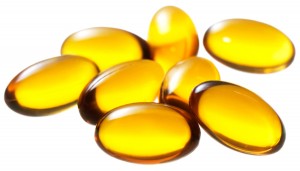 What is Vitamin E and Why do I Need It?
What is Vitamin E and Why do I Need It?
Did you know that every day cellular reactions in our bodies normally generate highly reactive compounds called free radicals? Free radicals seek out electrons, which are present in high concentrations in cell membranes and DNA. When free radicals pull electrons from these sources they cause damage, either by altering the cell\’s DNA, which may increase the risk for cancer, or by injuring cell membranes, possibly causing cell death. Neither of these results is desirable.
Luckily our bodies also contain compounds called antioxidants that donate electrons to free radicals, thus sparing cell membranes and DNA from injury and alteration. One of the body\’s most important antioxidants is Vitamin E. Vitamin E, which you may also see called alphatocopherol, is one of the four fat-soluble vitamins (the others are Vitamins A, D, and K). While it is unlikely to find signs of Vitamin E deficiency in the United States or Canada among healthy nonsmokers, the benefits of Vitamin E in counteracting free radical damage suggest it is a dietary component to pay attention to!
How Much do I Need and Where Can I Find It?
The current Recommended Dietary Allowance (RDA) of Vitamin E for adults is 8-10 mg/day on average. Those following a low fat diet that involves moderation, variation, and balance can easily achieve this level. The most nutrient dense food sources of Vitamin E are plant oils and some fruits and vegetables. Using a tablespoon of olive, corn, soybean, or safflower oils in your cooking every once in awhile will add a significant amount of Vitamin E to your diet. Remember that the key is in moderation. Don\’t start deep-frying in an attempt to boost your Vitamin E intake! Alternatively, nuts like almonds, walnuts, and peanuts, which contain plant oils, are also great sources of Vitamin E. Again, practice moderation so that your fat intake stays under control. These foods do not have to consumed daily; rather aim to incorporate good sources of Vitamin E into your weekly diet plan! Maybe the best way to get Vitamin E for those on low fat diets is through consumption of whole grain and bran cereals. Green leafy vegetables such as asparagus and brussel sprouts, sweet potatoes, mangos and kiwis are also excellent, low fat sources of Vitamin E.
Can Vitamin E Prevent Disease?
A number of research groups around the world have been investigating whether Vitamin E has a role in the prevention of prostate cancer. Case-control and cohort studies have suggested that Vitamin E does help to prevent prostate cancer development in male smokers. A large-scale study is currently underway in the United States and aims to provide more conclusive evidence about the role of Vitamin E in prostate cancer prevention as well as recommendation for supplementation.
The Bottom Line!
Don’t let those nasty free radicals cause havoc in your body. Protect your cells and challenge free radicals with adequate sources of Vitamin E!
Shaun Karp is a certified personal trainer in Vancouver. For further information call his office at 604-420-7800.
